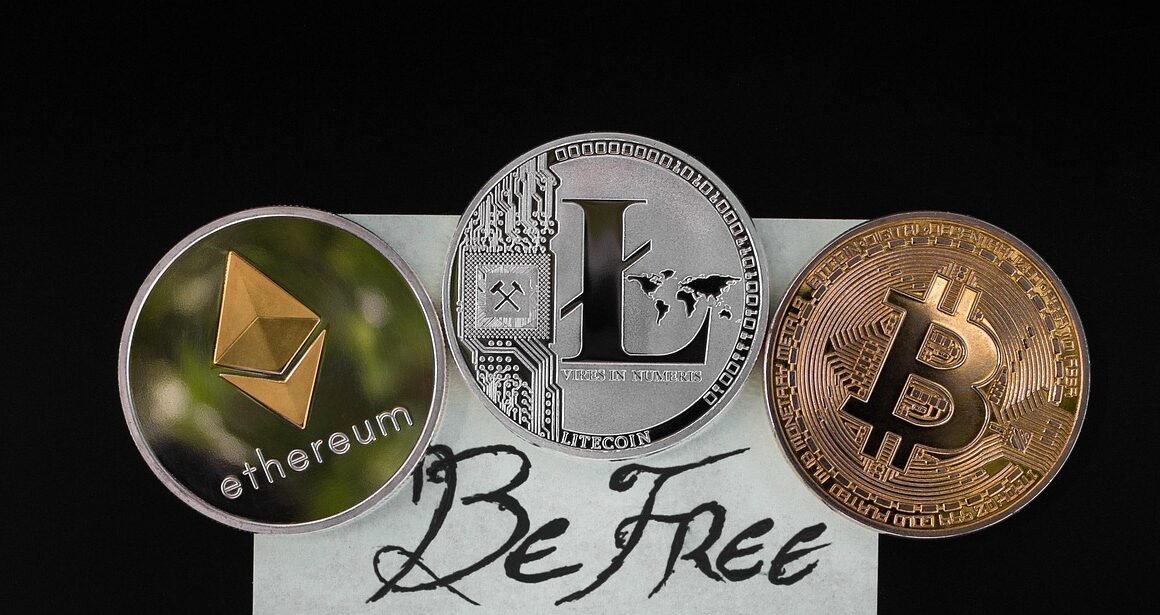Cryptocurrency has revolutionized the financial landscape, and understanding how to securely store and manage your digital assets is paramount. That’s where crypto wallets come in. Whether you’re a seasoned investor or just dipping your toes into the world of Bitcoin, Ethereum, and other digital currencies, choosing the right crypto wallet is a crucial first step. This comprehensive guide will walk you through everything you need to know about crypto wallets, from the different types available to security best practices.
Understanding Crypto Wallets
What is a Crypto Wallet?
A crypto wallet is essentially a digital interface that allows you to interact with a blockchain network. It doesn’t actually store your cryptocurrency; instead, it stores the private keys necessary to access your digital assets on the blockchain. Think of it like a key to a safety deposit box (your crypto holdings). Without the key (your private key), you can’t access the contents of the box. The public key, derived from the private key, is similar to your account number, allowing others to send you cryptocurrency.
- Private Key: Grants you access to control and spend your cryptocurrency. It’s crucial to keep this safe and never share it.
- Public Key: Similar to an account number, used to receive cryptocurrency.
- Wallet Address: A human-readable version of your public key, used for transactions.
Why Do You Need a Crypto Wallet?
Simply put, you need a crypto wallet to manage and control your cryptocurrency. Without a wallet, you wouldn’t be able to:
- Send and receive cryptocurrency.
- Store your digital assets securely.
- Interact with decentralized applications (dApps).
- Participate in staking or yield farming.
- Take advantage of the burgeoning DeFi ecosystem.
Types of Crypto Wallets
Hot Wallets vs. Cold Wallets
Crypto wallets are broadly categorized into two main types: hot wallets and cold wallets. The primary difference lies in their connection to the internet.
- Hot Wallets: These are connected to the internet, making them convenient for frequent transactions. Examples include online wallets (exchange wallets), software wallets (desktop and mobile apps), and browser extensions. While convenient, they are more vulnerable to online attacks.
Example: Using MetaMask, a browser extension wallet, to interact with decentralized exchanges (DEXs) like Uniswap.
- Cold Wallets: These are not connected to the internet, offering a higher level of security. Examples include hardware wallets and paper wallets. They are ideal for long-term storage of large amounts of cryptocurrency.
Example: Storing Bitcoin on a Ledger Nano S hardware wallet and keeping it offline.
Software Wallets
Software wallets are applications you install on your computer or smartphone. They offer a balance of security and convenience.
- Desktop Wallets: Offer more security than mobile wallets but are tied to a specific computer. Examples include Electrum and Exodus.
- Mobile Wallets: Convenient for on-the-go transactions but can be more vulnerable if your phone is lost or compromised. Examples include Trust Wallet and Coinbase Wallet.
Hardware Wallets
Hardware wallets are physical devices that store your private keys offline. They are generally considered the most secure option for storing cryptocurrency.
- Key Features:
Private keys are stored offline, protected from online threats.
Transactions are signed on the device, preventing keylogging attacks.
Usually require physical confirmation via a button press to authorize transactions.
- Popular Brands: Ledger, Trezor, Coldcard.
- Considerations: Higher upfront cost compared to software wallets.
Paper Wallets
Paper wallets involve printing out your public and private keys on a piece of paper. While they offer offline storage, they are less convenient and require careful handling.
- Best Use Cases: Long-term storage of cryptocurrency with minimal transactions.
- Risks: Susceptible to physical damage (fire, water) and theft.
- Creation: Typically created using online paper wallet generators (exercise caution and use reputable generators offline).
Security Best Practices
Protecting Your Private Keys
Your private keys are the most important asset you need to protect. Here are some essential security measures:
- Never Share Your Private Keys: No one should ever ask you for your private keys. Be wary of phishing scams.
- Backup Your Wallet: Store your recovery phrase (seed phrase) in a safe and secure location, preferably offline.
- Use Strong Passwords: Choose strong, unique passwords for your wallets and email accounts.
- Enable Two-Factor Authentication (2FA): Add an extra layer of security to your accounts.
- Keep Your Software Updated: Regularly update your wallet software and operating system to patch security vulnerabilities.
- Beware of Phishing Scams: Always double-check the website addresses and email sender information before entering your private keys or passwords.
Cold Storage for Long-Term Holdings
For long-term cryptocurrency holdings, consider using cold storage to minimize the risk of online attacks. This involves transferring your cryptocurrency to a hardware or paper wallet and keeping it offline.
- Example: Moving a significant portion of your Bitcoin holdings to a hardware wallet like Ledger or Trezor and only keeping a small amount in a hot wallet for daily transactions.
Generating and Storing Seed Phrases
A seed phrase (also known as a recovery phrase or mnemonic phrase) is a set of 12 or 24 words that can be used to recover your wallet if you lose access to it. It’s crucial to generate your seed phrase in a secure environment and store it offline.
- Generating Seed Phrases: Most wallets generate seed phrases automatically when you set them up. Ensure you are using a reputable wallet.
- Storing Seed Phrases:
Write down your seed phrase on a piece of paper and store it in a safe place.
Consider using a metal seed phrase storage device for added protection against fire and water.
Do not store your seed phrase digitally (e.g., in a text file or email).
Split your seed phrase into multiple parts and store them in different locations.
Choosing the Right Crypto Wallet
Assessing Your Needs
The best crypto wallet for you depends on your individual needs and preferences. Consider the following factors:
- Security: How important is security to you? If you’re storing a large amount of cryptocurrency, a hardware wallet is recommended.
- Convenience: How often do you need to access your cryptocurrency? If you make frequent transactions, a hot wallet might be more convenient.
- Types of Cryptocurrency Supported: Does the wallet support the cryptocurrencies you want to store?
- User Interface: Is the wallet easy to use and understand?
- Reputation: Has the wallet provider had security breaches in the past? Read reviews and do your research.
Research and Reviews
Before choosing a crypto wallet, it’s essential to do your research and read reviews from other users. Look for wallets with a proven track record of security and reliability.
- Sources of Information:
Cryptocurrency news websites and blogs.
Wallet review websites and forums.
Social media and online communities.
Testing with Small Amounts
Before transferring a large amount of cryptocurrency to a new wallet, it’s a good idea to test it with a small amount first. This will help you familiarize yourself with the wallet’s interface and ensure that you can send and receive cryptocurrency successfully.
Conclusion
Choosing the right crypto wallet is a critical decision for anyone involved in the cryptocurrency space. By understanding the different types of wallets available, their security features, and best practices for protecting your private keys, you can confidently manage and secure your digital assets. Remember to prioritize security, assess your individual needs, and do your research before making a decision. With the right wallet, you can navigate the exciting world of cryptocurrency with peace of mind.



